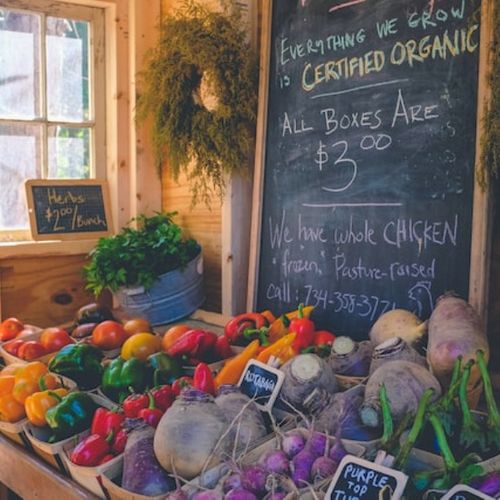Organic Food : Better for the Body or Not Worth the Price?
Sep 29, 2022 · 2 mins read
0
Share
Eco-friendly, sustainable, compostable… these are buzz words we are exposed to regularly thanks to corporate greenwashing capitalising on environmental trends. No business has suffered this onslaught of marketing slogans and made-up labels more than the food industry.
Save
Share
The term 'organic' is one designation for items we eat. What does it mean in the USA today? Organic food is grown without the use of pesticides, fertilizers or hormones and does not contain GMOs. If a product is 95% or more organic, it can be labelled as such.
Save
Share
The roots of organic agriculture can be traced back to the 1840s and mineral plant nutrition theory, but it wasn’t until the 1920s that comprehensive organic farming procedures were proposed. Today there are 5 million acres of certified organic farmland in the US alone.
Save
Share
Organic is not just for fruit and vegetables. Practising sustainable farming techniques and using only natural substances, meat and dairy may also be organic. The label is found on some processed foods such as bread, crackers, pasta, pet food and baby food.
Save
Share
Produce labelled as organic is more expensive than the alternative 'inorganic' version because the processes used are of a higher standard. Spraying a field of tomatoes with pesticides is easy. Nurturing the same quantity of plants organically without chemicals is more difficult.
Save
Share
Is organic food better for your health? In some cases, yes. Studies shows fewer toxic metals such as cadmium in organic grains. Meat which hasn’t been injected with antibiotics is safer to consume and organic fruits and vegetables carry no pesticide residue.
Save
Share
Research states "reviews of multiple studies show that organic varieties do provide significantly greater levels of vitamin C, iron, magnesium, and phosphorus than non-organic varieties of the same foods… they are also significantly lower in nitrates and pesticide residues.”
Save
Share
Farms that produce organic food are focused on developing renewable agricultural practises, improving the air and soil quality, reducing pollution, reusing whatever materials possible such as water, soil, and manure. Intensive methods take from the land without replenishing it.
Save
Share
Health benefits aside: there is no doubt that organic farming is better for biodiversity and the planet. Intensive agricultural procedures create dangerous waste, often polluting land, and waterways. It leads to devastating deforestation, soil erosion and toxic air contamination.
Save
Share
Struggling to afford organic? Feeding a family shouldn’t be a source of guilt. Any apple offers better nutrition than no apple.
As organic practises become widespread, pesticide-free food prices should balance out when farms return to a more Earth-friendly type of agriculture.
Save
Share
0
